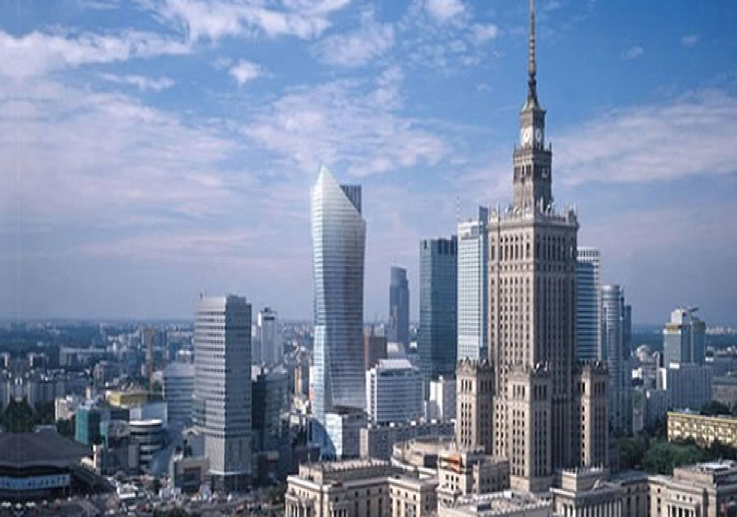The World Business Council for Sustainable Development (WBCSD) organized Climate Solutions in Action, the Global Business Day, in Warsaw, Poland on 18 November 2013, on the sidelines of the Warsaw Climate Change Conference.
 18 November 2013: The World Business Council for Sustainable Development (WBCSD) organized Climate Solutions in Action, the Global Business Day, in Warsaw, Poland on 18 November 2013, on the sidelines of the Warsaw Climate Change Conference.
18 November 2013: The World Business Council for Sustainable Development (WBCSD) organized Climate Solutions in Action, the Global Business Day, in Warsaw, Poland on 18 November 2013, on the sidelines of the Warsaw Climate Change Conference.
Plenary I included three sessions. In “Getting down to action,” Peter Bakker, President, WBCSD, called on the private sector to take the lead in scaling up climate efforts and solutions through Action 2020, a platform that sets the agenda for business action on sustainable development until 2020 and beyond. In “Getting the messages straight,” Hela Cheikhrouhou, Executive Director, Green Climate Fund (GCF), highlighted the private sector’s role in helping the GCF promote and support a paradigm shift towards low carbon and climate resilient solutions.
In “What are the big ideas on climate change to avoid the trillionth tonne carbon,” WBCSD members outlined the five big ideas in Action 2020: carbon capture and storage (CCS); forests as carbon sinks; electrifying cities towards zero emissions; low carbon electrification of remote locations; and resilience to climate change in globally interdependent business. In the discussion, participants highlighted the need to, inter alia: add a ‘big idea’ on renewable energy; and address consumption patterns.
Two panel discussions took place in Plenary II. Speakers at “Addressing the climate challenge in time” discussed, inter alia: the role of carbon pricing in forcing the displacement of fossil fuel technologies and encouraging removal technologies; investments in CCS to complement energy efficiency and renewable energy investments; and CCS cost and liability concerns.
The panel on “Electrifying and decarbonising cities” described a World Bank project that promotes energy efficiency and low-carbon buildings by emphasizing their savings; and a neighborhood “ecomobility” project in Suwon, South Korea, where residents used bicycles and electric vehicles provided by the city for one month. Speakers also discussed, inter alia: improving transport systems by creating seamless transitions between public and private transport; and the higher costs of retrofitting energy efficient solutions to existing buildings.
The closing plenary focused on “Convergence 2015 – a roadmap to a universal climate change agreement.” Peter Bakker, WBCSD, described Action 2020 as a journey that will culminate at the 2015 UNFCCC conference, where the big ideas will be translated into concrete requests for policy makers, financing partners and capital markets. Nick Nuttall, UN Environment Programme (UNEP), called for addressing the global financial architecture. Michael Jacobs, Institute for Sustainable Development and International Relations, urged the business community to be clear in their demand for a strong international agreement. In the discussion, participants addressed, inter alia, the need to align messages from the business community through partnerships such as Action 2020; and the externalities of doing business. [IISD RS coverage of Global Business Day]